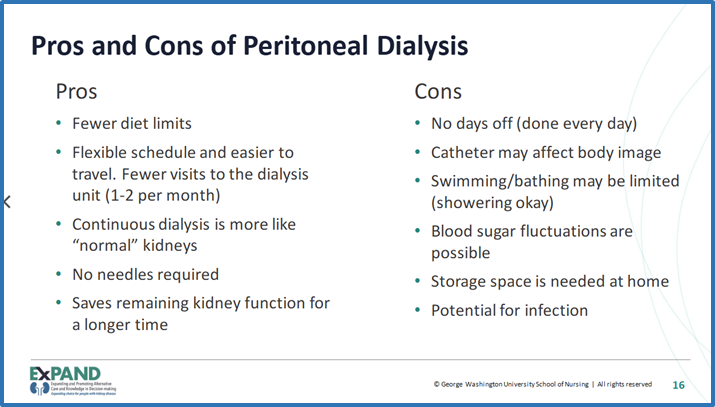“If you are able to communicate how much you value what [the patient] brings to the conversation, I think it not only establishes rapport, but it also allows them to open up in a different way than maybe they have been able to do with other providers.”

Dr. Kimberly Wallace, a nephrology nurse practitioner at WVU Medicine, is a champion for shared decision-making between providers and patients. In her role, Dr. Wallace often delivers Kidney Disease Education (KDE) to patients, which is a conversation centered around determining the best treatment option for patients with late-stage kidney disease. With such an important topic, it is critical for patients to feel heard, be informed, and be invited to engage in the decision-making process.
WVU Medicine is participating in the ExPAND Project, a multicenter implementation study funded by the Patient-Centered Outcomes Research Institute (PCORI) that aims to ensure older adults with kidney disease have the information and support they need to follow their chosen treatment pathway. With the help of patient advisors and national experts, the ExPAND Project team developed a KDE toolkit that provides a balanced overview of those treatment options. Dr. Wallace has used the ExPAND toolkit extensively and, paired with her shared decision-making conversational strategies, has noticed the positive impact a complete KDE session can have.
“I want them to be as informed as they can be”
A good KDE session isn’t necessarily defined by the clinician’s ability to share as much objective information as possible. For Dr. Wallace, it is important to recognize the patient’s current understanding and preferences before diving into the material. “I am letting them guide what my education looks like,” says Dr. Wallace. Through gentle questions, clinicians can get a sense of how much patients know about a treatment option. If they seem to have a good grasp of the concept and have strong feelings for or against it, then Dr. Wallace will adapt her KDE accordingly. We would not be listening to the patient, she says, if we ignore the patient’s current understanding and present all the material anyway.
“It equalizes every option”
One of Dr. Wallace’s favorite parts of the ExPAND KDE is the pros and cons tables that appear throughout the presentation deck. Nephrology as a practice can lean heavily on established workflows and default treatments like dialysis. The ExPAND KDE seeks to re-establish balance and offer all treatment options in an objective, compare-and-contrast manner.

"Ultimately, the decision is yours"
Dr. Wallace sees a low incidence of patient/provider discord when it comes to choosing a treatment option thanks to the KDE sessions. By ensuring patients feel fully informed and are working from the same set of information as the provider, Dr. Wallace notices that she and her patients pick the same treatment pathway most of the time.
Sometimes, though, there can be conflict between caregivers, families, and the patient. In these scenarios, Dr. Wallace sees an opportunity to empower the patient. As a mediator in these discussions, the provider can give the patient space to explain their thought process and make decisions about their own care. By highlighting the patient as the key figure in the dialogue, Dr. Wallace is not discounting the group; rather, she is reminding everyone who is the ultimate decision-maker.
You can listen to the full conversation with Dr. Wallace and the Coalition for Supportive Care of Kidney Patients here, which includes discussion around billing and KDE clinic note best practices.
The ExPAND Kidney Disease Education toolkit is publicly available on the Coalition for Supportive Care of Kidney Patients website.
Article by Matthew Ryan for the Coalition for Supportive Care of Kidney Patients.

